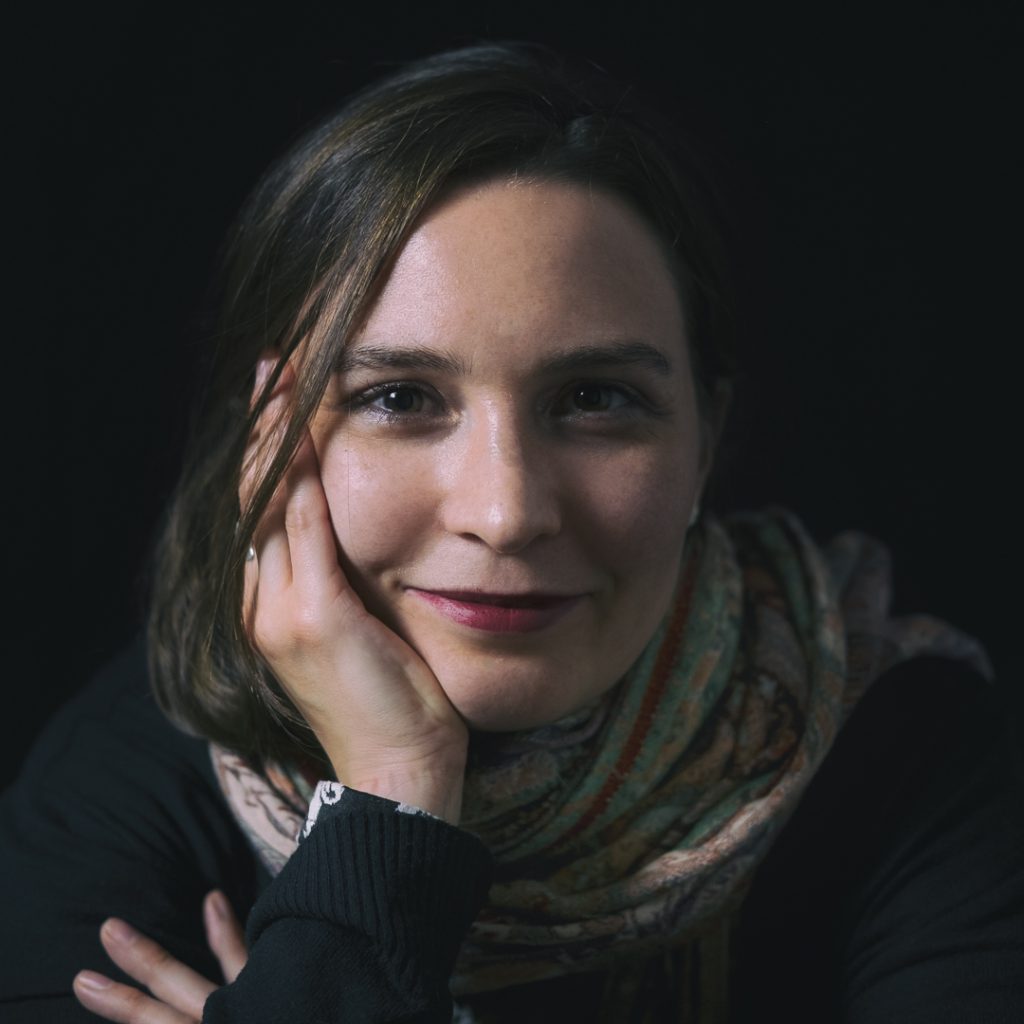The interview series poses questions concerning the role of affects and emotions in research practice and contemporary society to researchers on short-term visit and associate members of the Collaborative Research Center “Affective Societies”. Today, we introduce Steffi de Jong who is a historian at University of Cologne. During the lecture series Affective Publics: places – networks – media she gave a lecture entitled “Witness Auschwitz? How VR is changing Holocaust memory”.
1. Which research question affects you at the moment? What is its social significance?
I am interested in how people remember the past and how the past influences the present and forms the future. I have just finished a project by the Grimme Forschungskolleg on the use of virtual reality (VR) for Holocaust memory. VR is a relatively new technology that is not yet widely spread. Nevertheless, there are first attempts at using VR for teaching about or remembering the Holocaust, for example by digitally reconstructing concentration camps or representing historical events. I think that these VR experiences stand at the beginning of a digital corporeal and affective phase of Holocaust memory in which the body of the user of digital media becomes an ever more important part of the memorial process. They might also change the way in which we understand witnessing in the context of Holocaust memory as they give the illusion of presence in time and place. The users are plunged into a virtually reconstructed historical reality. Controllers – or in the future possibly body suits – give physical feedback. Apart from those very new developments, I am also interested in past memorial practices. In my research project Performed Historicism, financed by the Gerda Henkel Foundation, I am currently analyzing the beginnings of reenactment in the 19th century. It was very common to performatively represent the past in the 19th century. Tableaux vivants reproduced historical artworks, statues or historical events. During historical processions amateur actors mimed their ancestors. Artists’ festivals often had a historical motto. A realist historicist theatre brought accurately researched costumes and set designs to the stage. At the end of the century, pioneers of experimental archaeology tried to generate historical knowledge by reproducing past practices. I am looking at what conception of authenticity was applied in those reenactments and at how they induced immersion. The way in which individuals and societies remember the past has got an enormous influence on how they shape the present and imagine the future. Studying memory is therefore crucial for understanding social and political developments – whether today or in the past.
2. Can you think of an emotion whose relevance has recently surprised you?
The Covid 19 pandemic has plunged all of us into a whole array of emotions. The emotion that I find most difficult to understand in this context is the anger that some people have developed with regard to policies that aim at saving other people’s lives – or even their own. Such reactions are not surprising from a historical point of view, but I would have hoped for more solidarity.
3. Do you perceive any affective driving force or affective barrier concerning your research work?
Doing research on Holocaust memory of course often brings about strong emotions. The stories and pictures that I am confronted with every day can be hard to bear. It often helps to have a clear research focus and a clear goal in order to cope. Sometimes those emotions motivate me to continue with my work though. I am not convinced that memory will necessarily prevent further atrocities. However, I do think that people can be induced to reflect on their everyday actions by being confronted with horrible things that happened in the past. We have to find the right memorial tools for this purpose, which is an ongoing and ever changing process.
4. Which book has lately affected you the most?
The book that has most affected me lately is one that has not been published and that I have worked on myself together with my mother. I spent some time at my parents’ place last summer while my little niece was there as well. Since there was not much to do and we could not really go anywhere, I started telling her a story about a princess who turns into a dragon. She loved it. Around Christmas, my mother had the idea of turning the story into a children’s book. The book became kind of a family project. I wrote the story, my mother created beautiful pictures for every chapter, my father worked on the layout and my brother was responsible for copyediting. It was something that helped us to stay connected when we could not see each other. For my niece’s sixth birthday in April, we gifted her the finished book. She was really touched. Whenever I talk to her now, we continue telling the story and invent new characters. The universe of the story allows us to travel to phantastic places now that travelling has become difficult.
5. From which feelings or sentiments would you rather refrain at the moment?
Like everybody else I am eagerly awaiting the end of the pandemic. I am especially looking forward to a time when we no longer have to be afraid our loved ones, or we ourselves, will fall ill or be otherwise affected by the virus. I am also looking forward to not spending so much time alone anymore. What I find particularly hard to cope with at the moment is the feeling of desperation – it still seems hard to imagine a better future.





